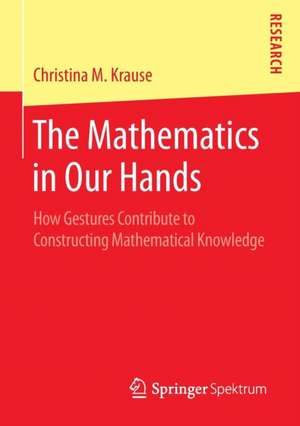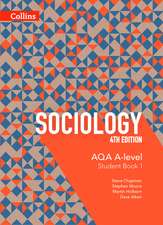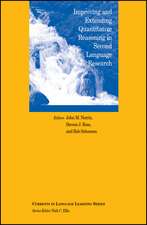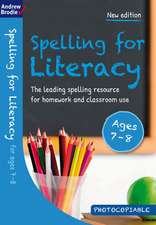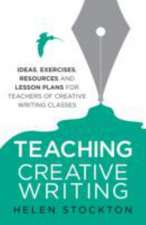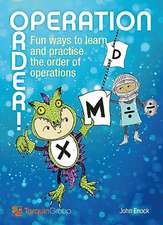The Mathematics in Our Hands: How Gestures Contribute to Constructing Mathematical Knowledge
Autor Christina M Krauseen Limba Engleză Paperback – 19 ian 2016
Preț: 391.02 lei
Nou
Puncte Express: 587
Preț estimativ în valută:
74.82€ • 80.01$ • 62.38£
74.82€ • 80.01$ • 62.38£
Carte tipărită la comandă
Livrare economică 18 aprilie-02 mai
Preluare comenzi: 021 569.72.76
Specificații
ISBN-13: 9783658119478
ISBN-10: 3658119470
Pagini: 350
Ilustrații: XIX, 350 p. 87 illus.
Dimensiuni: 148 x 210 x 21 mm
Greutate: 0.49 kg
Ediția:1st ed. 2016
Editura: Springer Fachmedien Wiesbaden
Colecția Springer Spektrum
Locul publicării:Wiesbaden, Germany
ISBN-10: 3658119470
Pagini: 350
Ilustrații: XIX, 350 p. 87 illus.
Dimensiuni: 148 x 210 x 21 mm
Greutate: 0.49 kg
Ediția:1st ed. 2016
Editura: Springer Fachmedien Wiesbaden
Colecția Springer Spektrum
Locul publicării:Wiesbaden, Germany
Public țintă
ResearchCuprins
On the Role of Gestures in Learning Mathematics.- A Semiotic Approach and Perspectives on Learning.- Extended Methods and Methodology.- Results on the Representational and the Epistemic Functions of Gestures.- Towards the Role of Gestures: A Comparison.- Reflections, Synopsis, Perspectives.
Recenzii
Notă biografică
Christina Marie Krause earned her PhD at the University of Bremen. She currently holds a postdoctoral position at the Mathematics Education working group of the University of Duisburg-Essen and works as a researcher and lecturer.
Textul de pe ultima copertă
In her empirical study, Christina Krause investigates how gestures can contribute to epistemic processes in social interactions. She expands the traditional speech-based approach to analyzing social processes of constructing mathematical knowledge by employing a multimodal perspective. Adopting a semiotic approach, she takes into account two functions of gestures as signs used by the participants of the social interaction: the representational function concerns the ways in which gestures take part in referring to a mathematical object in processes of knowledge construction and the epistemic function relates to the ways in which they can contribute to the performance of collective epistemic actions. The results of this study reveal that gestures influence the epistemic process significantly more than previously thought and indicate factors underlying this influence.
Contents
Christina Marie Krause earned her PhD at the University of Bremen. She currently holds a postdoctoral position at the Mathematics Education working group of the University of Duisburg-Essen and works as a researcher and lecturer.
Contents
- On the Role of Gestures in Learning Mathematics
- A Semiotic Approach and Perspectives on Learning
- Extended Methods and Methodology
- Results on the Representational and the Epistemic Functions of Gestures
- Towards the Role of Gestures: A Comparison
- Reflections, Synopsis, Perspectives
- Scientists and teachers in mathematics education and gestures studies
Christina Marie Krause earned her PhD at the University of Bremen. She currently holds a postdoctoral position at the Mathematics Education working group of the University of Duisburg-Essen and works as a researcher and lecturer.
Caracteristici
Publication in the fields of mathematics education and gestures studies Includes supplementary material: sn.pub/extras
